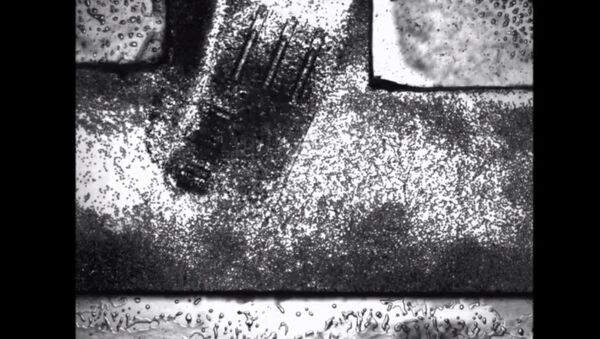"We’re going to make a tiny, tiny swimmer that actually navigates inside the human body, through the bloodstream or any body fluid inside the body," said Dr. Sung Kwon Cho from University of Pittsburgh’s Swanson School of Engineering. Cho recently received a National Science Foundation grant for $724,691 to develop the diminutive vehicle.
Dr. Cho told KDKA in Pittsburgh that the one-millimeter-wide implement would be powered externally by soundwaves, and its main use would be bio-imaging and delivering treatment to specific areas.
"Sometimes you need to deliver the drug to some specific target. It’s not in the entire body. So, basically, this drone can carry the drug and then only release it in the targeted area," he said.
SEE VIDEO BELOW:
The mini-swimmer has been successfully tested in blood and water, and soon Cho and his team hope to see how the craft operates in conditions similar to that of human organs. After the mini-drone finishes its mission, it wouldn’t have to be removed, as it would simply dissolve inside the body.
Dr. Cho explained, "We are eventually making this drone as biodegradable, so once you use it, you basically automatically dissolve it so you don’t have to open your body. You don’t have to take it out."


